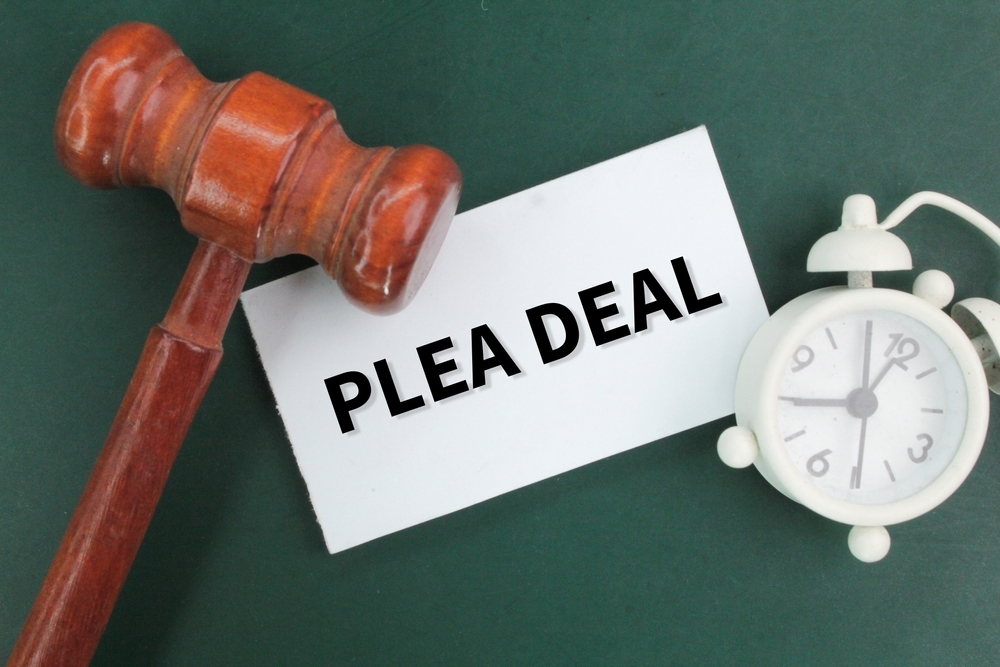
Understanding Plea Deals in Pennsylvania
If you're facing criminal charges in Pennsylvania, one of the first decisions you may have to make is whether to accept a plea deal. At Muckler Law, we work closely with individuals to help them understand their rights and make informed choices about how to move forward. A plea deal, also called a plea bargain, is a common way to resolve criminal cases in both state and federal courts. In essence, it’s a negotiated agreement between the defense and the prosecution, where the defendant agrees to plead guilty to certain charges in exchange for a lighter sentence or reduced penalties.
These agreements can resolve cases more quickly, reduce the stress of going to trial, and help avoid the harshest potential consequences. However, no plea agreement is final until it’s reviewed and approved by a judge, who must ensure it serves the interests of justice and fairness.
Still, choosing whether to accept or reject a plea deal is a serious decision – one that can have long-term consequences. It’s important to consider the legal implications and possible outcomes, and to do so with the guidance of a skilled defense attorney who understands both your goals and the law.
Types of Plea Bargains
There’s no one-size-fits-all plea deal. Here are the most common types:
- Charge Bargaining: You agree to plead guilty to a less serious charge than what you were originally facing.
- Sentence Bargaining: You plead guilty in exchange for a lighter sentence.
- Fact Bargaining: You agree to certain facts of the case so the prosecution doesn’t introduce more damaging evidence (this is less common).
- No-Contest Plea (Nolo Contendere): You don’t admit guilt, but you accept the conviction and any resulting penalties. While this isn’t technically a plea bargain, it’s sometimes used as an alternative to pleading guilty.
Knowing your options can help you make a more informed decision about whether to accept or go to trial.
Pros and Cons of Refusing a Plea Deal
Turning down a plea bargain isn’t necessarily a bad idea – but it’s not without risks. Here are some key points to consider:
Potential Benefits of Refusing a Plea Deal
1. You Might Be Found Not Guilty
If you go to trial and win, you avoid any conviction, jail time, or long-term consequences. A clean record can protect your future job prospects, housing opportunities, and more.
2. You Can Fight Charges You Believe Are Unfair
Plea deals often require you to admit guilt – even if you believe you didn’t do anything wrong. Going to trial gives you a chance to fight back and force the prosecution to prove their case beyond a reasonable doubt.
3. You May Avoid a Criminal Record
A conviction from a plea deal stays on your record. If you’re acquitted at trial, your record stays clean – which can be especially important for professionals, students, or anyone concerned about background checks.
4. You Keep Your Legal Rights Intact
By accepting a plea, you waive important rights like the right to a trial, the right to confront witnesses, and in many cases, the right to appeal. Refusing the deal allows you to keep these protections in place.
5. You Might Avoid Strict Probation Conditions
Plea deals can include tough probation terms like frequent drug testing, travel restrictions, or mandatory counseling. Winning at trial could help you avoid those conditions altogether.
Possible Downsides of Refusing a Plea Deal
1. You Could Face a Harsher Sentence
If you're found guilty at trial, the sentence may be more severe than what was offered in the deal. Prosecutors often seek the maximum penalty in these situations, especially if the case involves aggravating factors or prior offenses.
2. Trials Are Unpredictable
Even strong defenses don’t guarantee a win. The outcome depends on how the evidence is presented, how witnesses perform, and how the judge or jury interprets everything.
3. Legal Costs Can Add Up
Going to trial takes time and resources. Between court fees, expert witnesses, and extended attorney involvement, the costs can increase significantly compared to resolving the case through a plea.
4. Trials Can Be Emotionally Draining
The courtroom experience can be stressful for you and your loved ones. The pressure of repeated court dates, cross-examinations, and uncertainty can take a toll on your mental and emotional health.
5. It Could Disrupt Your Job or Family Life
Pending criminal charges and court obligations can interfere with your work, travel, and home life. Some employers may even factor in pending charges when making decisions about your job.
6. You Might Feel Pressured – One Way or the Other
Many defendants accept plea deals out of fear – not necessarily guilt. It’s important not to make such a life-changing decision under pressure or without fully understanding the consequences.
Why Legal Representation Makes All the Difference
Whether you’re considering a plea deal or preparing to go to trial, having the right attorney by your side is crucial. At Muckler Law, we help clients:
- Analyze the strength of the evidence against them
- Negotiate fairer plea terms, if that’s the best route
- Build strong defense strategies for trial
- Protect their rights throughout every step of the case
- Make confident, informed decisions about how to move forward
Our job is to make sure you understand your options and feel supported throughout the legal process.
Talk to Muckler Law Before Making a Decision
If you’re facing criminal charges in Pennsylvania and unsure whether to accept a plea deal, reach out to Muckler Law. We serve clients in Kingston, Wilkes-Barre, Hazleton, Pittston, and across Luzerne County.
Every case is unique, and the right path forward depends on your specific situation. We’ll listen to your story, explain your rights, and help you decide what’s truly in your best interest.
Don’t try to navigate this alone. Contact Muckler Law for a confidential consultation.
Frequently Asked Questions
1. Can I change my mind after accepting a plea deal?
Once a plea deal is entered and accepted in court, it’s generally difficult to take back. That’s why it’s critical to speak with an attorney before agreeing to any terms. Your lawyer can help ensure you fully understand the consequences before making a final decision.
2. What happens if I go to trial and lose?
If you reject a plea and are later convicted at trial, you may face a longer sentence or tougher penalties than those originally offered. Every case is different, so it’s important to discuss the risks and benefits with your defense attorney.
3. Is a no-contest plea better than pleading guilty?
A no-contest plea means you don’t admit guilt, but you accept the conviction and penalties. It may be useful in certain cases, especially when trying to avoid civil liability, but it’s not always an option. Your attorney can explain whether it's available and advisable in your situation.
Disclaimer: This blog is for informational purposes only and does not constitute legal advice or create an attorney-client relationship. Every case is different. Please consult with an attorney regarding your specific situation.


